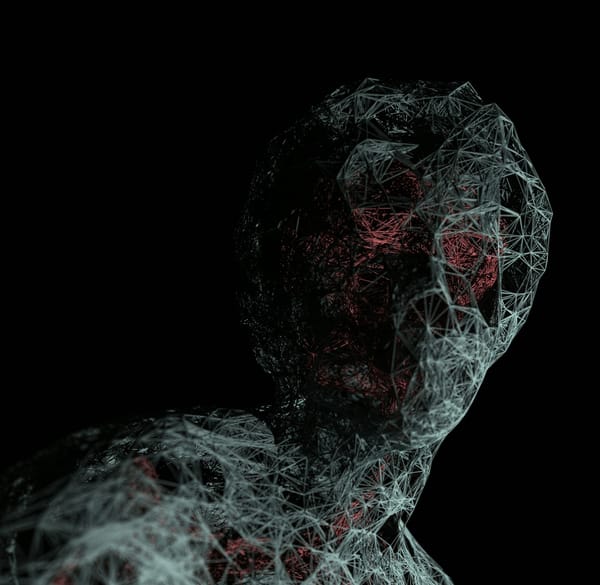Why Medicine is Not Noble

Saving lives, improving health, and preventing disease go to the core of our fear of dying. It stands to reason that the people doing it practice a noble profession. Sacrificing decades to save people is as noble as it gets.
Except that’s not exactly what doctors think about when they’re doing it.
For most doctors, that’s just another day at the office. Not in an arrogant way. It really is just that. You go through mostly pre-determined steps that usually lead to the desired outcome. You’ll know when that’s not the case because doctors will tell you about it. Doctors’ stories are about outside-the-norm things that happened one day.
Most jobs have stories like that, but not many of them have TV shows made about it. And as in most things, the power of pop culture reigns supreme.
If you’re outside the medical system, it would probably surprise you to learn how boring the job is most of the time, and how many doctors admit to practicing medicine because they couldn’t do anything else. Not having other options sounds like finding in medicine a true calling, but in reality, not being able to do anything else is literally true.
We don’t generally like to admit it, but as doctors, we love following paths—horrendously difficult paths, to be sure, but paths nonetheless.
Most of us were good in school, so we found comfort in it from a young age.
The rule is simple: if you do your work conscientiously, you advance.
The next step is usually more grueling than the previous, but you know exactly what the next step is, so you take it. With or without realizing it, we extend the schooling process longer than most people would find reasonable. We do it because it’s predictable. That’s not to say that the process is unnecessarily long. On the contrary, it’s needed. But it says a lot about the kinds of people attracted to it.
For better or worse, doctors are not supposed to be innovators. We have guidelines for everything. We are trained to follow evidence-based practices and protocols that have been proven to work. Deviating from them is often risky, unnecessary, and sometimes deadly. While practicing doctors may occasionally contribute to advancements in medical knowledge or techniques, at the core, their primary role is to apply existing knowledge as safely and effectively as possible.
Being a doctor is less about individual creativity and more about collective reliability. The whole training process is designed to instill this mindset. Doctors learn to trust the established methods and to rely on the wealth of accumulated medical knowledge built over centuries.
But it takes us years to internalize this.
If a young medical student hopes to change the world as a neurosurgeon, they slowly learn that they have to reconsider. Neurosurgeons undoubtedly influence individual lives, but if their primary objective is to have the greatest impact, they will not be able to do it on a large enough scale to be satisfied. As boring as it may sound, that’s the job of administrators, managers, and entrepreneurs who get pleasure from optimizing processes. And nobody goes to medical school aiming for that.
This places medical students and young doctors at a crossroads. They either accept that caring for individual patients is less significant than they had hoped, or they switch paths and get into more administrative or entrepreneurial roles.
There are several reasons why most of them choose the first option.
- Inertia. Much work is put into becoming a doctor, so switching shirts mid-play is hard. Once you’re a doctor in your own right, it’s almost impossible to find the mental fortitude to be a novice again in a different field.
- Betrayal. Not against the medical system itself, but against the individuals who made it all possible. Mother, father, friends—they all have either made great efforts to turn a high-schooler into a doctor or are very loud at expressing their appreciation for what becoming one means.
- Echo chambers. Colleagues, professors, and the outside world praise the burden taken on by doctors. They are constantly surrounded by people who have no interest in questioning a doctor’s impact on society. Medical students are taught by a single group of people: doctors who dedicate their lives to being doctors. Medical students take this message and echo it, partially because they believe it, and partially because they want to.
And while few people are comfortable deviating from the beaten path in general, nowhere else is that more apparent than in medicine. You take a group of people who inherently like the security of predictable steps, add the perceived inherent nobility of staying true to it, and you get the perfectly content world of medicine.
As the years progress, doctors become increasingly aware that the nobility of the profession comes not from the individual acts of heroism, but from the collective commitment to patient care and the rigorous adherence to proven medical practices. It's a different kind of nobility—one that values consistency over creativity and collective effort over individual glory. It takes a certain type to participate in such a system.
We slowly understand that the most impactful practicing clinicians are the ones nobody dreams about becoming.
All doctors are guaranteed to feel the prongs of this new mature reality. And as that happens, a part of them dies. Add the daily deluge of paperwork and non-medical tasks they attend to, and they become aware of being stuck in a world they didn’t design and have little control over.
It gets better as years go by, and mainly for three reasons:
- Because they get more input over their daily activity, which brings some semblance of control,
- Because they get used to how things actually run and accept that they have to do the best that they can with what they have, so they become content,
- Or a combination of both.
All this may seem like an argument that takes zero account of the importance of doing your best for the individual patient. It may even seem cold and transactional.
But in reality, doctors are acutely aware of the importance and sanctity of a single person’s health. They know how hard life hits people sometimes. They are surrounded by suffering. Downturns and impending doom lurk. It’s their job to see the constant barrage of horrible things that can happen to a person.
But after the bad moments pass and they’re alone with their thoughts, one thing never comes back: the blanket idea that medicine is as noble as the world thinks it is.
So then where does this myth of medical nobility live?
Within each of us, feeding on vulnerability.
When we’re sick, our entire identity seems at risk. Everything we stand for, our thoughts, memories, and hopes are diverted to an uncertain future. To alleviate the inherent frailty that comes with illness, we look to doctors to solve it.
But when it comes to deeply personal risks, trust in the skill is no longer enough. We need to believe that whoever prods, probs, cuts, and rummages inside does not only have the knowledge to do it, but also the right.
When we trust someone with everything, we have to believe not only that they will treat us competently, but that they will do so with an unquantifiable quality beyond the books.
A nobility.
This necessity for trust elevates the status of doctors in a patient's eyes, making their work appear more noble than it feels to them.
This conflict is best illustrated when doctors become patients. Doctors simply don’t know what to do with this newfound role. Is medicine noble, as they want to believe for themselves, or is it not, as they know from their practice? For each doctor, becoming a patient is a time for exploration and (with some luck) insight.
This perceived nobility of the medical profession is a complex interplay of societal expectations, individual vulnerabilities, and the inherent structure of medical practice.
This may all seem like a very elaborate way of saying ”It depends”. It's somewhat true. How we perceive medicine is influenced more by where we stand and less by any intrinsic truth.
But exploring it is important.
As doctors, we must navigate these contradicting truths. Patients might lack context, so we shouldn't cloak ourselves in a nobility we know doesn't exist. Instead, we should reflect on the magnitude of the world they have inside, and do our best to protect it.





